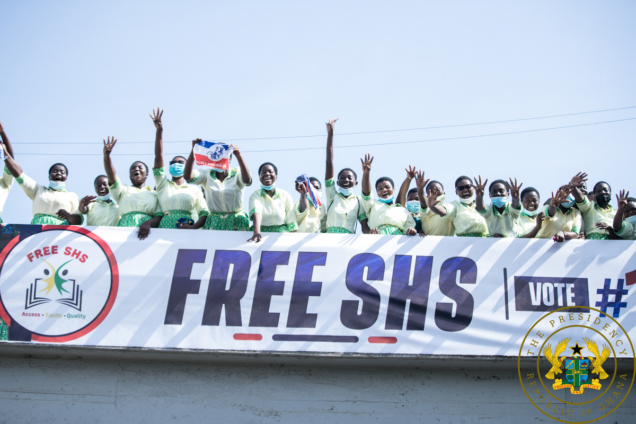The Ghana National Association of Teachers (GNAT) is actively pushing for a crucial national stakeholder dialogue to evaluate the sustainability of the Free Senior High School (SHS) policy, years after its initial implementation, in light of the country’s present economic circumstances.
The primary objective of this dialogue, as proposed by the teacher union, is to smoothen the rough edges of the Free SHS program and initiate a comprehensive review to ensure seamless execution.
The General Secretary of GNAT, Thomas Musah, conveyed that pivotal points of discussion in the dialogue encompass the admission framework and processes, funding sources, as well as the involvement of parents, parent-teacher associations, traditional authorities, and old students’ associations.
Mr Musah believes that this collaborative endeavour will play a pivotal role in fine-tuning the programme, rendering it sustainable long after its introduction.
He said that “as an integral participant in the educational landscape, GNAT is earnestly calling for a substantial review and transformation of the Free SHS Policy. This is essential to ensure the effective and successful execution of the program for the greater good of Ghana.”
The GNAT General Secretary emphasised the importance of broad participation in the crucial national assignment to facilitate comprehensive participation and varied perspectives.
The Free SHS initiative, initiated in September 2017 by the NPP government as a fulfillment of a campaign pledge, became a cornerstone of their manifesto during the 2012 and 2016 general elections.
Although lauded as a commendable endeavour, recent challenges within the program, particularly concerning provisions such as food items, have spurred discussions about the necessity of a review and the potential involvement of parents.
Acknowledging the positive intent behind the Free SHS programme, Mr Musah insists that dedicated efforts should be invested to ensure its continuity.
GNAT, as a responsible and patriotic organization, is fully committed to contributing to any form of dialogue or forum that aligns with this objective.
Mr Musah further notes that while some proposed a shared cost arrangement between the government and stakeholders, the government opted for sole responsibility, leading to some of the challenges faced today.
He expressed concern about the adverse effects of allocating resources to Free SHS at the expense of essential funding for public basic schools that urgently require support.
Latest Stories
-
We will take drastic measures to halt dollarisation of economy – BoG Governor
5 minutes -
NSMQ 2025 Northern Qualifiers: Drama as two schools withdraw over bereavement and fear of Ghana SHS
14 minutes -
Gov’t begins payment of monthly allowances to Assembly Members
22 minutes -
Cedi must lead Ghana’s economy – BoG to clamp down on dollar transactions
26 minutes -
Ghana Anti-Corruption Coalition urges youth to take lead in combating corruption
34 minutes -
Village Savings and Loan Groups in Wassa Amenfi West receive financial literacy training
36 minutes -
When the Elephant Lost its Trunk: A Post-Election Safari in the Republic of Uncommon Sense
45 minutes -
Education Ministry secures additional $117.1m to expand GALOP interventions
47 minutes -
Government of Ghana endorses Trans-African Tourism and Unity Campaign
48 minutes -
WAFCON 2024: Chantelle Boye-Hlorkah credits team unity for Black Queens’ quarter-final berth
54 minutes -
A Giant Leap for African Unity: Kenya’s historic Visa-Free policy and the Trans African tourism and unity campaign
60 minutes -
Holuta Aflakpe DA JHS wins 10th edition of Ho West District Quiz Competition
1 hour -
Daniel Ayittah becomes first Ghanaian gospel engineer to join GRAMMY Academy
1 hour -
GES to scale up transformative Kindergarten programme nationwide
1 hour -
BoG to mark 60 years of the Cedi with anniversary celebration in August
1 hour

